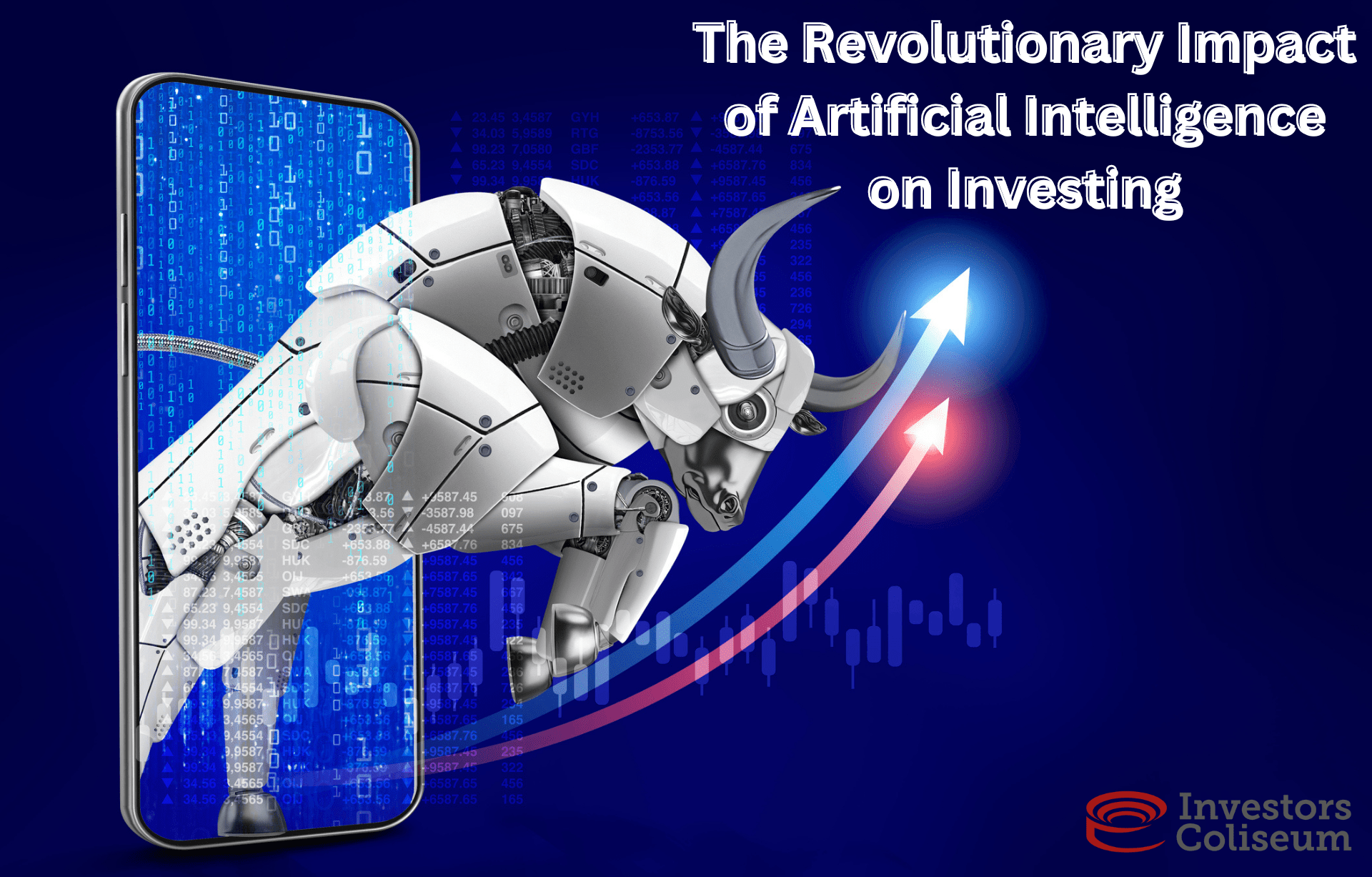Introduction:
Artificial Intelligence (AI) has emerged as a disruptive force across industries, and its influence on the financial sector, particularly in investing, has been transformative. This essay explores the profound impact of AI on investing, unraveling the key applications, benefits, challenges, and the future trajectory of this groundbreaking amalgamation of technology and finance.
- Quantitative Analysis and Algorithmic Trading:
-
- AI has revolutionized quantitative analysis by processing vast amounts of financial data with unprecedented speed and accuracy. Machine learning algorithms, fueled by AI, can identify intricate patterns and correlations, providing investors with valuable insights.
- Algorithmic trading, a cornerstone of AI applications in investing, leverages these algorithms to execute trades automatically. This not only optimizes entry and exit points but also enhances market liquidity and efficiency.
- Predictive Analytics and Machine Learning Models:
- Machine learning models are instrumental in predictive analytics, enabling investors to make data-driven decisions. These models analyze historical data and real-time market information to predict future trends and potential market movements.
- The adaptive nature of AI allows these models to continually learn and improve, enhancing the accuracy of predictions over time. Investors can leverage these insights for better-informed decisions regarding portfolio management and risk mitigation.
- Portfolio Management and Risk Assessment:
- AI has reshaped portfolio management by offering personalized insights and recommendations. These systems can dynamically adjust portfolios based on changing market conditions, investor preferences, and risk tolerance.
- Advanced risk assessment models, powered by AI, contribute to more informed decision-making. By analyzing a multitude of risk factors in real-time, AI helps investors navigate uncertainties, ensuring that portfolios align with their financial objectives.
- Alternative Data Utilization:
- AI’s ability to process alternative data sources beyond traditional financial metrics has become a game-changer in investing. This includes analyzing social media sentiment, satellite imagery, and other unconventional datasets to provide a holistic view of market dynamics.
- The integration of alternative data empowers investors to uncover hidden opportunities and assess potential risks that may not be apparent through conventional analysis. This diversified approach contributes to more nuanced and well-informed investment strategies.
- Challenges and Ethical Considerations:
- While the benefits of AI in investing are undeniable, challenges persist. Algorithmic biases, data quality issues, and the opacity of some AI models raise concerns about the reliability and fairness of automated decision-making.
- Ethical considerations surrounding the impact on employment in the financial sector, potential market manipulation, and the responsible use of AI demand careful attention. Striking a balance between innovation and ethical responsibility is crucial for the sustainable integration of AI in investing.
- The Future Outlook:
- The future of AI in investing holds immense promise. Advancements in natural language processing, reinforcement learning, and quantum computing are expected to further enhance the capabilities of AI models.
- The collaboration between human investors and AI systems is likely to deepen, with AI focusing on data analysis and pattern recognition, while human judgment, intuition, and ethical reasoning remain irreplaceable in navigating the complexities of financial markets.
Conclusion:
In conclusion, AI’s integration into investing signifies a paradigm shift in the financial landscape. From quantitative analysis and algorithmic trading to predictive analytics and risk assessment, AI has ushered in a new era of data-driven decision-making. Despite challenges and ethical considerations, the future outlook suggests a continued symbiotic relationship between human expertise and AI capabilities. Embracing the transformative potential of AI in investing is not only essential for staying competitive but also for navigating the evolving dynamics of financial markets with agility and precision.
